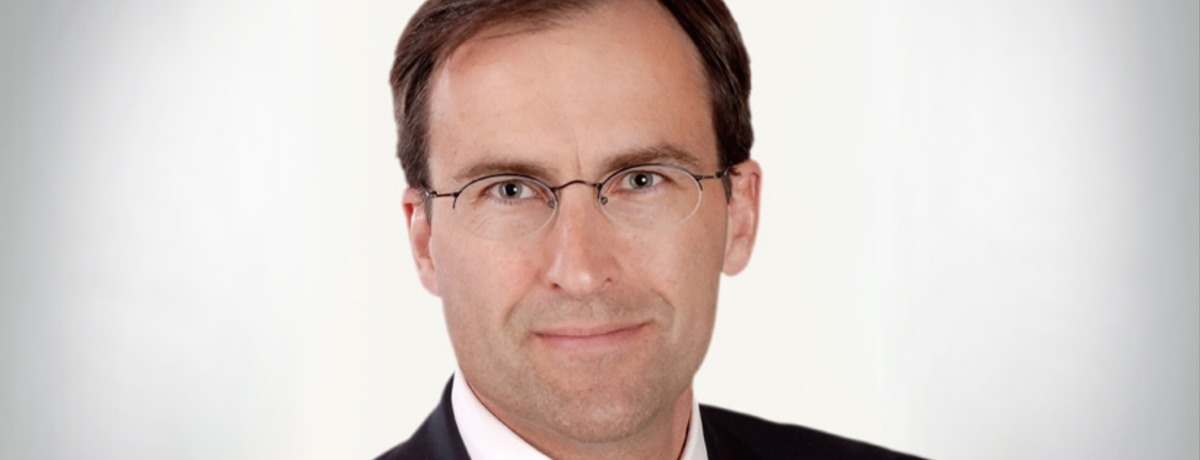Walter Uebelhoer, of 2019 German “Law Firm of the Year” award-winning firm Allen & Overy, says he began his work in banking and finance law by accident—or perhaps a stroke of good luck. In an interview with Best Lawyers CEO Phillip Greer, Uebelhoer discusses the trends he sees in the banking sector, the global rise of the “Schuldschein,” his notable cases, and the anticipated impact of legal technology in the field.
Phillip Greer: What achievements from this past year do you feel led to your winning “Law Firm of the Year” in banking?
Walter Uebelhoer: We entered into a new generation of leadership this year, while still keeping our top clients, top mandates, and top instructions. There were originally three partners that set up the banking part of the firm in Germany in the late 1990s and early 2000s. Of those, one has retired, one is still with us, and one has moved on, so now it’s really the next generation that has to pull the wagon and represent the firm. Despite that big shift, our clients are focused on the team we have now and I think we managed to really stay on top of the market. This sort of shift in leadership is always a challenge but we have managed it quite well.
Can you tell me about one or two landmark cases you’ve handled from this past year or the last couple of years?
One was helping Siemens Gamesa Renewable Energy (a multi-billion dollar company) set up new and independent financing from its predecessor companies, Siemens and Gamesa. As for my colleagues, Thomas Neubaum and Bianca Engelmann definitely stand out. They successfully completed the merger financing between Hapag-Lloyd and UASC, which was one of the most prominent mergers in the shipping scene. Also, my restructuring partners Peter Hoegen and Bernhard Herding have had prominent roles with Kathrein, which was a big group of international companies that needed restructuring. Finally, I would like to point out our real estate finance practice, which is represented by Olaf Meisen, who financed the acquisition of 85 real estate properties for Patrizia. He was also on the financier side for a $1.7 billion acquisition financing of OfficeFirst by Blackstone—that’s the biggest acquisition of commercial real estate in the last 10 years in Europe.
Are there any trends or changes you witnessed within the banking sector in recent years? How do you see those playing out in the near future?
The rise of debt funds in the acquisition finance space has made a big impact. A flood of debt funds started doing business in Germany—we now have about 80 active debt funds providing acquisition finance in a number of different structures. These have cut out a significant piece of the banks business in the leveraged finance space. I also think that banks will be under pressure to consolidate in Europe, particularly if the low-interest period will continue for a few years. I expect we'll have fewer and stronger banks emerging from the current situation who will then compete head-on with these debt funds.
Another development that's notable is the rise of the German “Schuldschein,” which was an investment grade corporate loan and is traditionally not more than 10 or 15 pages long. The Schuldschein has become quite prominent, and issuers now range from pretty much everywhere in Europe. People are investing from anywhere in the world. There's still a majority of German-speaking issuers and investors, but this market has enlarged quite significantly over the last few years.
The other development that will shape interactions with banks and lawyers is the rise of legal tech. Automation will continue to grow. A driver of this will also be the war for talent. Law firms generally struggle with finding sufficient talent in the top bracket. The pool is just, structurally, not big enough to satisfy every law firm's needs, so law firms will face capacity constraints and that will continue to drive automation.
Is there anything else that you'd like to share about your firm or practice area?
I think what makes this firm stand out is its spirit. There are close personal relationships and shared goals amongst all the people in this firm. The partners are working together globally—so instead of many similar franchises in various countries, it's one very homogeneous firm, all across the globe. This is something that our clients value and that makes people stay with us. It makes them proud to be part of it.

































